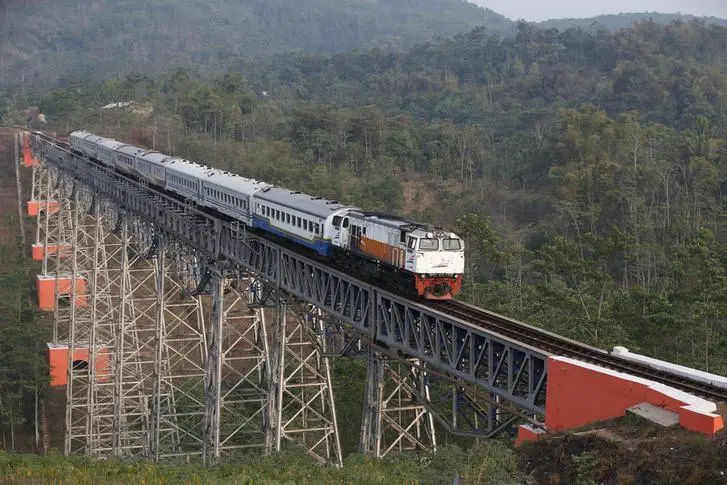PHOTO
JAKARTA - A consortium building a Chinese-funded high-speed rail link in Indonesia expects it will now take 40 years for its investment to become profitable, twice as long as initial estimates, due to plans to relocate the country's capital city, an executive said.
The Belt and Road Initiative (BRI) project also faces a cost overrun of about $2 billion, bumping up estimated costs to 113 trillion rupiah ($7.85 billion), Dwiyana Slamet Riyadi, president director of PT KCIC, told a parliamentary hearing on Monday.
PT KCIC is a consortium of Chinese and Indonesian companies building the 142-km (88.23 miles) rail line connecting the capital Jakarta to the city of Bandung in West Java.
Because of the plan to move the capital from Jakarta to Borneo island in 2024, trains connecting the cities are expected to carry 31,215 passengers per day, down from a previous estimate of 61,157 passengers per day, Riyadi said.
"Looking at the investment value, number of passengers and ticket prices, it's very difficult to follow the earlier feasibility study where the assumption of a return on investment will occur within 20 years," Riyadi said, noting a breakeven point will be reached in 40 years with proposed ticket prices ranging between 150,000 to 350,000 rupiah.
While trying to rein in costs, Riyadi told lawmakers KCIC needed to pay more for additional land clearing and faced higher worker salaries and escalating raw material prices.
As of the end of 2021, construction progress has reached 79.9%, according to KCIC data. It plans to commence a trial run in part of the rail line by the end of 2022 and to complete the project by June 2023.
Indonesian state companies, including Wijaya Karya and PT KAI, control 60% of KCIC, while China Railway Engineering Corporation and other Chinese companies control the rest.
The project, which is funded by China Development Bank, was awarded to KCIC in 2015 and launched in 2018 but has faced delays due to land ownership disputes and also questions over its economics and environmental impact.
Construction was also slowed by labour shortages during the early months of the COVID-19 pandemic. ($1 = 14,390.0000 rupiah)
(Reporting by Stefanno Sulaiman; Editing by Gayatri Suroyo and Ed Davies) ((Stefanno.Sulaiman@thomsonreuters.com;))





















